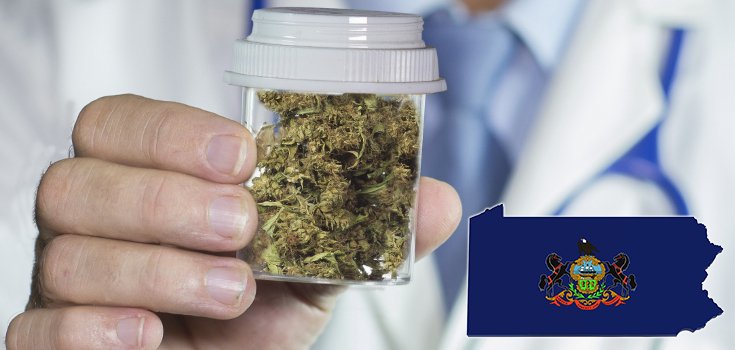Medical Cannabis Could Face a Complicated Vote in PA State Senate

In mid-March the Pennsylvania state House voted to legalize medical marijuana. If the Senate passes the bill and Gov. Tom Wolf signs it into law as he is expected to, it would make Pennsylvania the first state in the U.S. to allow medical marijuana as a treatment option for people with autism.
The Senate could vote on the bill very soon, though Senate and House leaders were still discussing potential changes to the piece of legislation, said Fred Sembach, chief of staff for state Sen. Mike Folmer, R-Lebanon, a key figure in the legalization effort. The debate centers on whether the House will be willing to pass a bill with the changes being considered in the Senate.
House leaders passed a bill containing far different language than what Senate leaders passed in May 2015, and this is the strictest part of the legislative process. In order for medical marijuana to be legalized in Pennsylvania, both chambers must approve exactly the same language before it can land on Gov. Wolf’s desk.
It’s just one more delay for the thousands of people in the state who could be benefiting from medical cannabis even as we speak.
Both versions of the bill prohibit smoking the weed. Cannabis could only be legally used for medical conditions in the form of oils, edibles, tinctures, capsules, and vapor. Edibles couldn’t be sold as candies or cookies, because lawmakers fear such forms would attract children and teens to the drug. Medical marijuana candidates would also be banned from growing plants at home.
Doctors who wish to register patients in the medical marijuana program would first need to register themselves with the Department of Health. In order for those physicians to reach “practitioner” status, they would first need to complete a training course on marijuana therapy. Senate leaders fear these strict protocols will severely limit the number of doctors legally able to care for medical marijuana patients.
State Senators’ fears are based on the medical cannabis programs in New York and New Jersey, where fewer than 1,000 doctors have signed up, making it nearly impossible for patients to find help. Many people in both states have complained of contacting a medical marijuana doctor, only to be told the provider is overloaded and not taking new patients.
Patients who are fortunate enough for find a doctor usually have to pay for their treatment out-of-pocket, because insurance companies aren’t exactly racing to sign up to cover marijuana therapy. Plus, patients have to pay a registration fee.
The lack of patients drives up the prices of marijuana products, and in NY and NJ, a month’s worth of treatment can run anywhere from $530 to $1200.
The high cost and intense hassle would no doubt be worthwhile to people suffering from debilitating pain, and parents desperate to help their child cope with the symptoms of autism. For them, getting the bill signed into law would be a massive victory.
But it shouldn’t be this difficult. The mission is simple: allow people to treat themselves with a plant that comes out of Mother Nature’s green earth, without a million exceptions and clauses, and ridiculous political maneuvering.

Leave it to politicians to complicate a very basic and pure thing.
Jennifer Kocher, a spokeswoman for Senate leaders said in an email to PennLive.com recently.
“The Senate returns to session next week and the hope is to have the review finalized then. It’s unclear what if any changes are going to be needed in the final draft at this point. Most of what we are considering are technical in nature – dotting the I’s and crossing the t’s. Outside of the budget process, this is the biggest policy change in the state since the gaming legislation was enacted. We want to be sure we have the best bill possible to the Governor for his signature.”
Sources:
